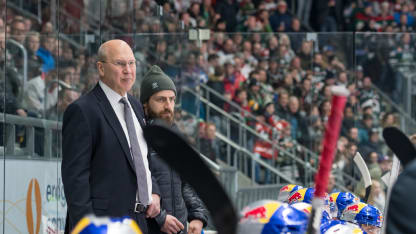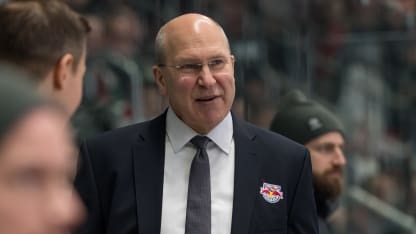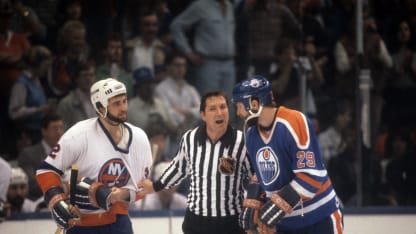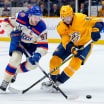After being traded to the Rangers in 1986, Jackson retired the next season before beginning his coaching career with the East Coast Hockey League's (ECHL) Knoxville Cherokees in 1989. Sixteen years later, as an assistant coach with the Ottawa Senators, the 2004-05 NHL lockout served as the catalyst for another crucial and defining moment in his career.
Europe came calling.
"That lockout season left the Ottawa staff without jobs," Jackson said. "Coincidentally, I got invited by Red Bull to come and consult in Salzburg during their first year in a team sport."
Jackson was then brought to Germany in February of 2005 as an assistant with Eisbären Berlin, who'd win their first championship that season winning three games to one over Adler Mannheim.
Two seasons in Düsseldorf at the helm of the DEG Metro Stars led him back to Berlin and a head coaching role there, yielding plenty of success for both Jackson and Berlin in the form of five championships in six seasons from 2007-13.
"It was definitely an adjustment. Learning and adapting to circumstances is the key," he said of his transition to coaching in the DEL and early success. "Between every league in the world, there's always a bit of a cultural difference, not just in the culture itself but the style of hockey. So when you go to Germany, Sweden, Finland, or even Russia and Switzerland, there's always some difference in the style of hockey. Same goes for the NHL."
The next season, in 2013, Jackson moved back to Austria and EC Red Bull Salzburg, coming within one game of capturing his fourth-consecutive championship. The organization quickly brought Jackson back to Germany, this time to head up their flagship team in Munich.
The results should have been expected - four more German league titles in four seasons from 2014-18, embracing much of the same structure and tactics that made the Oilers successful three decades prior.
"Guys like Gretzky, Messier, Coffey and Kurri were natural leaders and that's kind of how I framed those guys to this point in my career," Jackson said. "They made me feel important, and over 30 years later as a coach, those are the kinds of players I'm looking for and paying attention to when recruiting.
"Character and leadership are the foundations for any organization."
The fast, free-flowing style of the Oilers in the '80s can still be seen present day in Jackson's coaching philosophy and across the DEL as a league.
"It's the kind of hockey we pride ourselves on playing," he continued. "Guys will talk about what a good league it is here. Germany winning a silver medal in the Olympics, and the type of personnel that has come into the league over the past decade has helped German players. There are some excellent players playing overseas like Leon Draisaitl."






















